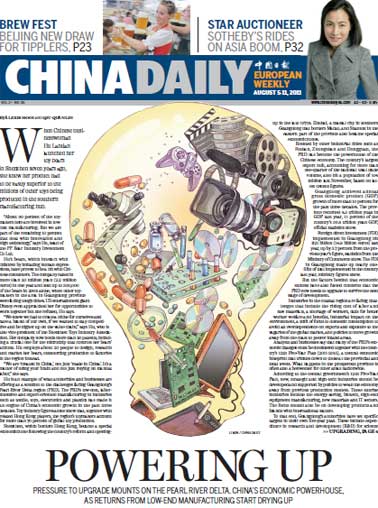Debt woes still plaguing US economy
Updated: 2011-08-05 11:35
By Wei Tian and Hu Yuanyuan (China Daily)
China concerned over fallout on global recovery
Chinese officials and economists expressed concern about further uncertainty in the US economy despite the debt ceiling being lifted.
A bipartisan bill to raise the debt ceiling by $2.4 trillion (1.68 trillion euros) to $16.7 trillion and cut the deficit by $2.1 trillion over a decade was signed by US President Barack Obama at the White House on Aug 2 just hours before the deadline.
However, Chinese ratings agency Dagong Global Credit Rating Co has downgraded US sovereign credit rating from 'A+' to 'A'.
The raising of the ceiling does not reverse the trend of debt growing faster than the US economy and actually marks a decline in the ability of Washington to pay its debts, Beijing-based Dagong says in a report.
Zhou Xiaochuan, governor of the People's Bank of China, the central bank, said on Aug 3 in a statement on the bank's website that the progress made in raising the debt ceiling and cutting the deficit was "welcome", but also urged the US to handle its debts responsibly.
He added that any uncertainty or fluctuation in the securities market would undermine financial stability and hinder global economic recovery.
"Meanwhile, we will continue diversifying our foreign reserve management and intensify risk control, so as to minimize the impact of fluctuation in global financial markets," Zhou said.
China is by far the largest foreign holder of US debt, with holdings of $1.16 trillion in May, US Treasury Department data showed. It is estimated that 70 percent of China's $3.2 trillion foreign reserves are dollar assets.
Ma Jun, chief economist for greater China with Deutsche Bank, says that a lower US rating will affect China mainly through trade, because if GDP in the US goes down by 1 percent, China's exports fall by 7 percent.
Capital markets will also be affected as a downgrade will damage investor confidence in Hong Kong and A-share markets on the mainland, Ma says.
Regardless of whether the US is rated 'AAA' or not, US Treasury securities are still a very secure asset, says Andrew Pease, chief investment strategist with Russell Investment Company, Asia Pacific. He insists that the scale and depth of the US Treasury market is irreplaceable and even a downgrade will not result in a massive undersell.
"But downgrading US credit will still put China in a difficult position," Pease says. "China will be unable to reduce its exposure quickly, so it faces bigger risks from capital losses both in terms of yields and a depreciation of the dollar against the yuan."
Two out of three major global rating agencies, Moody's and Fitch have maintained their 'AAA' rating for the US.
The focus is now on Standard & Poor's, which has not yet made its decision public.
S&P said earlier that a downgrade would be likely if there was no plan to stabilize debt as a percentage of GDP.
The agency expected a $4 trillion deficit cut as a "good down payment" toward stabilizing US finances.
Li Daokui, a member of the monetary policy committee of the central bank, says on his micro blog that the US rating will probably be downgraded in the next two months.
"The deficit cut over the next 10 years is just a 'rainbow', as it can be altered or even overthrown at any time by the next Congress," Li adds.
Frank Lavin, former US ambassador to Singapore, says in Beijing that even raising the downgrade question sends a signal to Washington to reconsider its fiscal policy.
Dagong predicts that the US has to cut $4 trillion from its deficit in the next five years to sustain its current debt scale, and the debt will exceed GDP by the end of 2012.
"A third round of quantitative easing (QE3) will drag the world into crisis and shake the very foundation of the dollar's status," the report says.
Dagong downgraded the rating for the US from 'AA' to 'A+' following QE2 in November.
Dong Xian'an, chief economist with Peking First Advisory, also believes that the plan to cut the US deficit increases the possibility of a QE3.
Zhuang Jian, senior economist with the Asian Development Bank, says that the US government has a number of choices to tackle the crisis, such as tax increases or QE3 as the last option.
E-paper

Double vision
Prosperous Hangzhou banks on creative energies to bridge traditional and modern sectors
Minding matters
A touch of glass
No longer going by the book
Specials

Ancient plate broken
An ancient porcelain plate was accidentally destroyed during a research in the Palace Museum.

Selfless actions
A 20-year-old girl becomes an Internet star for giving her first kiss to a drowning old man.

Space race
Homebuyers are learning the hard facts of supply and demand: too many cars and too few parking spaces.
